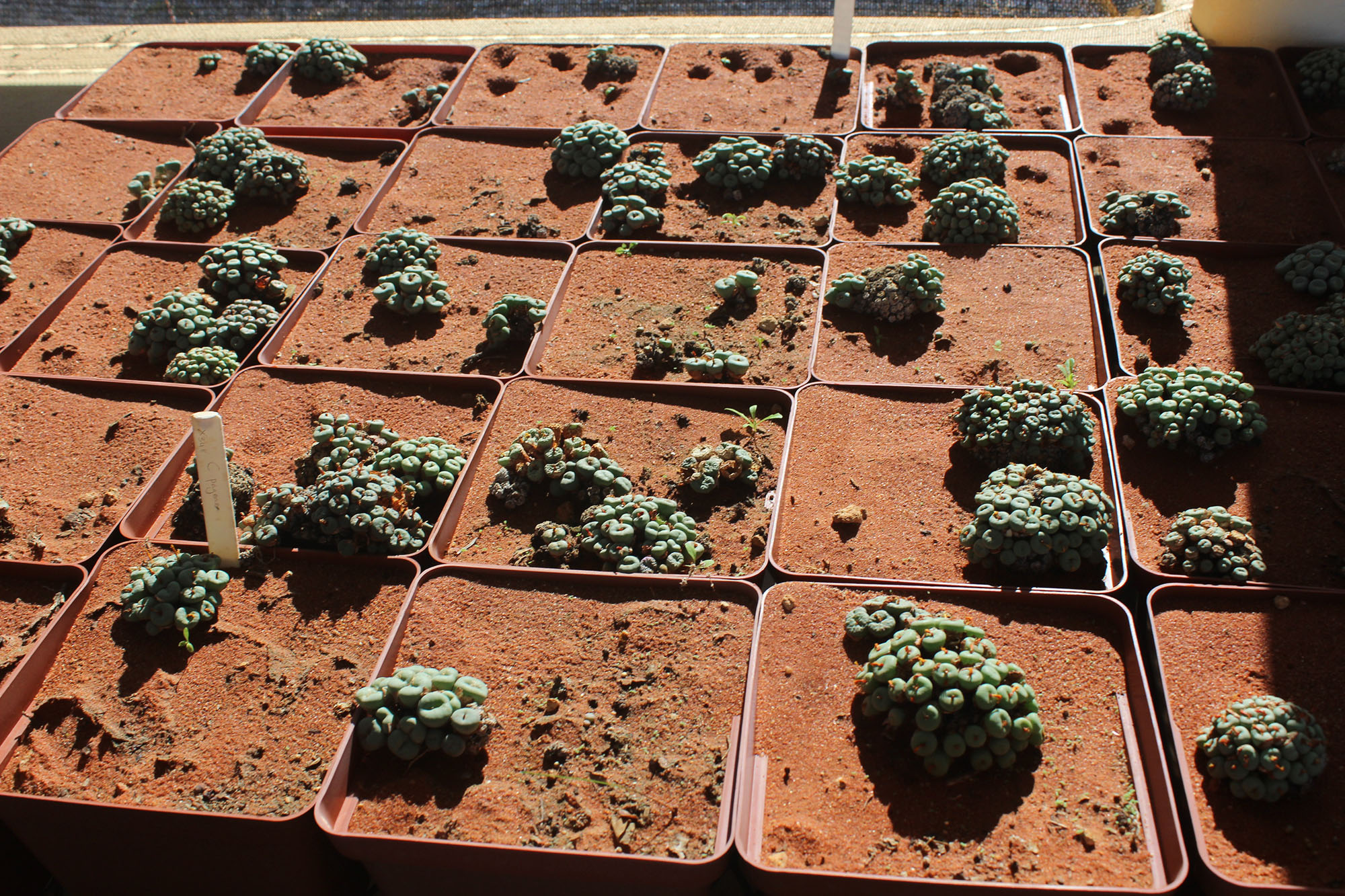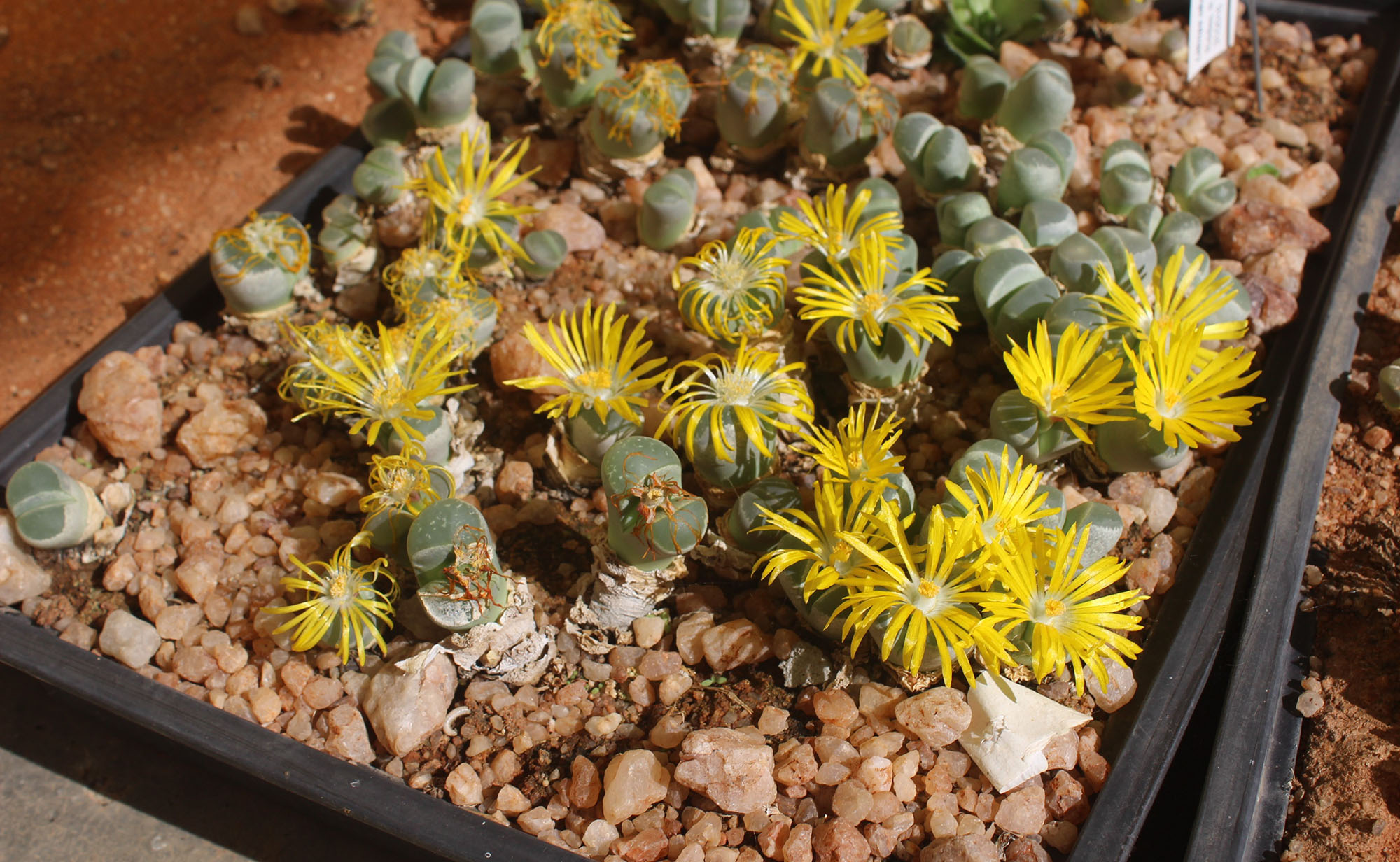When browsing on Facebook Marketplace for succulents, you might think you’re simply adding a touch of green to your office or home – but you could be unknowingly supporting illegal trade and harming South Africa’s Succulent Karoo Biome, one of the world’s only two arid biodiversity hotspots.
The trade, once limited to nurseries and physical catalogues, has found new life online; and e-commerce and social media platforms like eBay and Facebook Marketplace are unwittingly facilitating the growth of the illegal trade of plants poached in the wild.
Read more: B(l)ooming ecological crime ravaging SA exposed after three Saudi Arabians caught stealing 1.6m seeds and flora
This week, conservation organisations Traffic and Royal Botanical Gardens (RBG) Kew announced they have teamed up with eBay to fight the illegal trade.
Wait, why can’t I buy these plants?
Succulents are vital to the Succulent Karoo Biome, home to more than 6,300 plant species, 40% of which are found nowhere else on Earth. This biome supports the richest succulent flora in the world, yet more than 950 species are of conservation concern.
Western Cape and Northern Cape legislation protects many of these indigenous plants – so if a species is specified in the legislation, it’s illegal to carry out certain activities if you don’t have a permit.
Dominique Prinsloo, project manager of Traffic, a global NGO working to ensure sustainable trade in wild species, explained that if a species is protected or specially protected according to the provincial legislation, the nursery in that province needs a permit to grow and sell it.
There is a list of specific species called Threatened or Protected Species (ToPs), which is regulated through national legislation and has permit implications as well.
Poached to the brink of collapse
Domitilla Raimondo, Threatened Species programme manager at the South African National Biodiversity Institute (Sanbi), warned that SA’s diverse and unique succulent flora is under immense pressure from unprecedented illegal harvesting of succulents from the wild.
Field monitoring by Sanbi revealed an alarming decline in some highly range-restricted species, and in some cases more than 90% of the historically known populations have been illegally harvested.
The illegal harvesting of SA succulents has accelerated rapidly since 2019, driven by increased demand in Asia, with the most affected area being the Succulent Karoo Biome, specifically the Namaqualand region between Vanrhynsdorp and the Orange River.
Ramaindo explained that against the challenging socioeconomic backdrop in the region, organised crime syndicates lure community members into poaching succulents from the wild.
“Species with very limited distribution are now facing imminent extinction as collectors risk wiping out entire species in one harvesting event,” Ramaindo said.
Traffic reported that crime syndicates often lure people into poaching for low pay; in some cases, poachers are even paid in drugs.
Prinsloo suggests that when buying online, people should look for certifications from trusted independent bodies such as FairWild, Fairtrade Flowers and Plants and Wildlife Friendly Enterprise Network.
To ensure a legal and sustainable stream of income for local communities, it’s best to buy plants from certified nurseries which have the correct permits.
eBay hacking away at illegal vendors
As the trade of poached plants has shifted online, so too have the methods to fight it. Traffic and RBG Kew are working with eBay to develop a blueprint for the e-commerce platforms to prevent illegal sales, such as strengthening online trading policies for the sale of plants and detecting illegal sales.
In 2023, eBay reported that the site blocked or removed 500,000 items that violated its wildlife policies.
“A significant challenge for online platforms is how the trade in potentially thousands of species which differ in their conservation status, can be effectively monitored,” said David Whitehead, RBG Kew science officer and project lead.
“By developing more specific policies and measures for plant vendors to follow, species whose wild populations are particularly threatened by illegal collection from the wild can be identified and monitored more closely, to ensure any potential trade in these species is transparent and compliant.”
eBay is also working closely with Traffic and RGB Kew to create awareness among their staff members about the illegal trade in ornamental plants so they can monitor adverts for illicit goods. It is the first online platform to pilot the anti-plant-trafficking initiative with the conservation organisations.
Web-crawling algorithm
 Some of the tens of thousands of succulent plants rescued from plant poachers. (Photo: Tony Carnie)
Some of the tens of thousands of succulent plants rescued from plant poachers. (Photo: Tony Carnie)
 These Conophytum plants rescued from plant poachers may have another shot at life. (Photo: Tony Carnie)
These Conophytum plants rescued from plant poachers may have another shot at life. (Photo: Tony Carnie)
A key tool being refined byRBG Kew is FloraGuard, a web-crawling algorithm that scans online listings for species flagged as vulnerable or endangered, helping to identify plants that may have been harvested from the wild.
“The algorithm can search for multiple species of interest, and with thousands of species potentially available for sale online, is a useful tool to help conservationists evaluate patterns in trade more quickly,” Whitehead said.
Human expertise is still required to interpret the search results, as trade information for some threatened species can be very challenging to assess.
“This is where responsible vendors can help, by voluntarily providing more information within their adverts on the origin of their plants, propagation techniques and signalling clearly where any relevant permits are required,” Whitehead said.
How to spot a poached plant online
Traffic has created a guide that can help distinguish a nursery-grown plant from one poached from the wild.
Clues to look for include:
- Shape and form: Wild-harvested plants tend to look worn or irregular in shape, while nursery-grown specimens look more manicured.
- Marks and scars: Wild-grown plants often bear marks from their natural environment, like scars from weather or wildlife.
- Age and size: Some species, like Conophytum dwarf succulents, take years to mature. Large specimens may be a red flag that the plant was wild-harvested.
- Root condition: Wild plants often have damaged or torn roots, especially if they were pulled from rocks or branches.
Know the law
Even if a plant is nursery-grown, buyers should be aware of national and provincial legislation. Buying plants from vendors without proper permits can result in penalties.
Prinsloo also suggested that before adding a plant to your (online) cart, plug its scientific name into the IUCN Red List portal to check its status.
“If it’s listed as vulnerable or endangered, think twice unless you’re sure it was nursery-grown,” Prinsloo said.
What’s being done in SA
The Department of Forestry, Fisheries and the Environment (DFFE), with Sanbi and WWF South Africa, has developed a National Response Strategy to combat illegal succulent trade. Although the plan was approved in February 2022, its implementation is limited due to a lack of resources.
“Despite its endorsement, no resources have been allocated to the institutions responsible for the strategy,” Raimondo said.
Sanbi welcomed the collaboration between Traffic and eBay, noting that the development of tools to flag and remove suspected wild-harvested South African ornamental species is one of the key actions within the response strategy.
“Plants play an invaluable role in brightening up homes and supporting good mental health,” Prinsloo said. “But they also have critical roles to play in their natural habitats, so we can’t afford to lose them from the wild.”DM




 These Conophytum plants rescued from plant poachers may have another shot at life. (Photo: Tony Carnie)
These Conophytum plants rescued from plant poachers may have another shot at life. (Photo: Tony Carnie) 